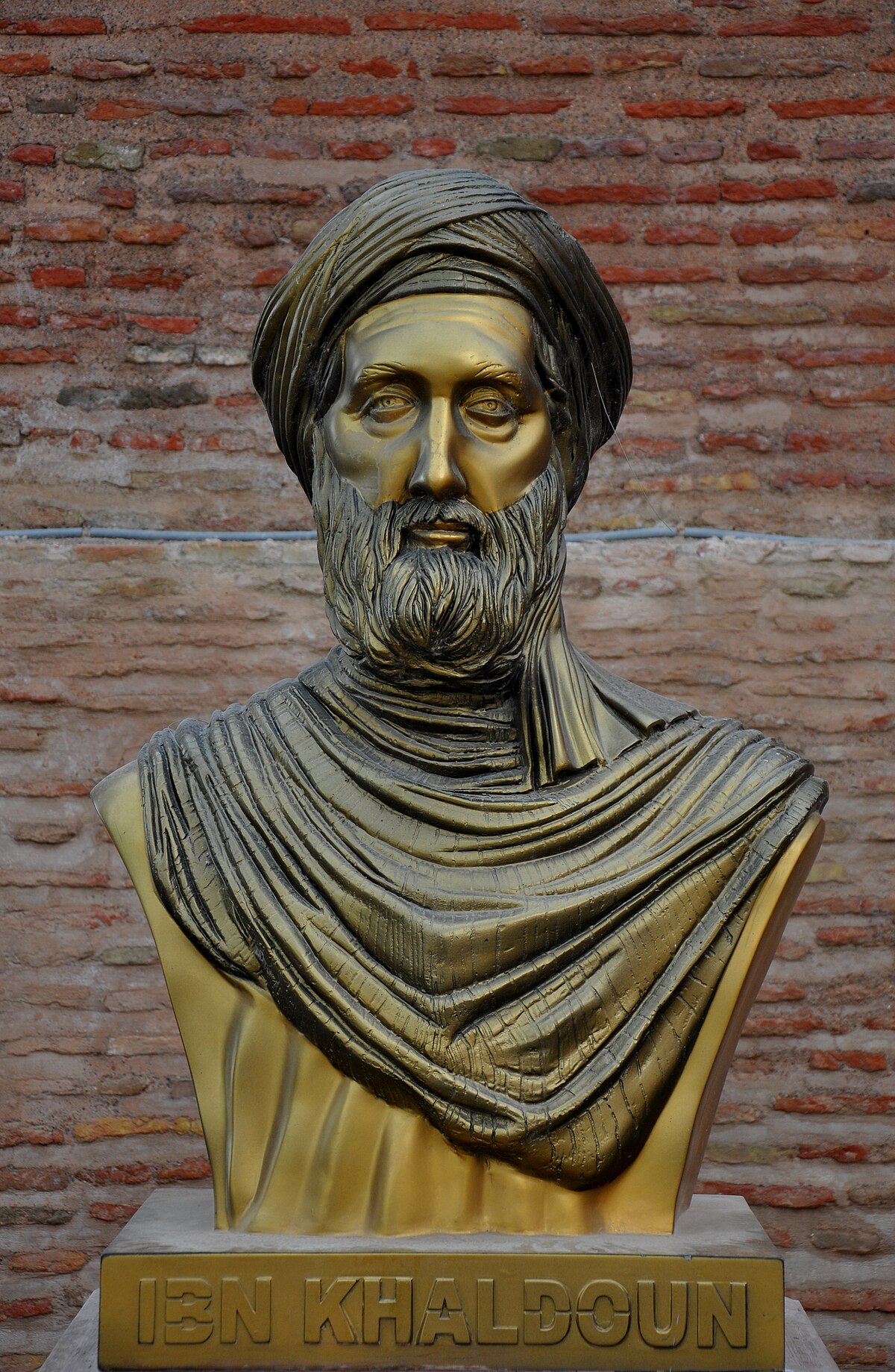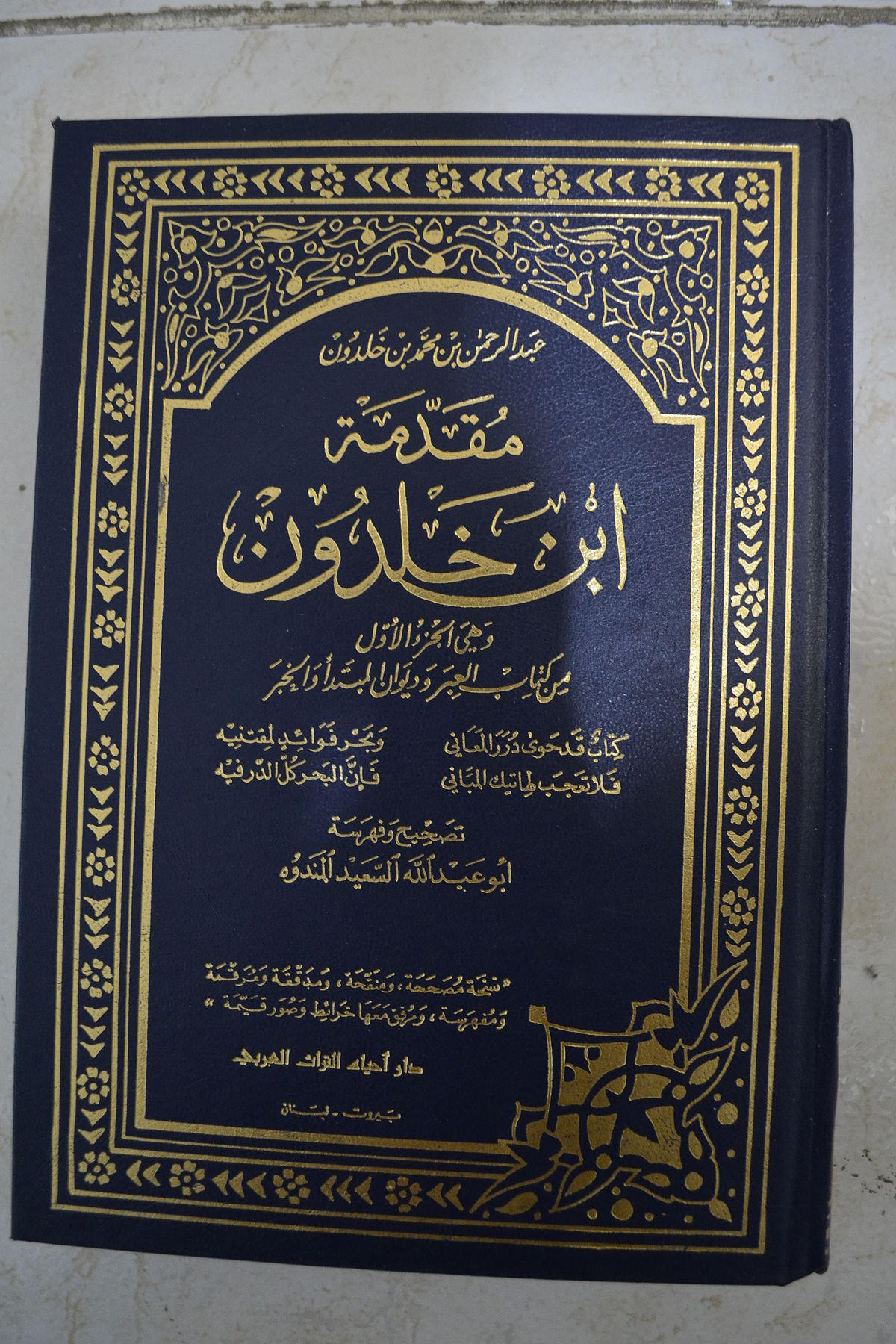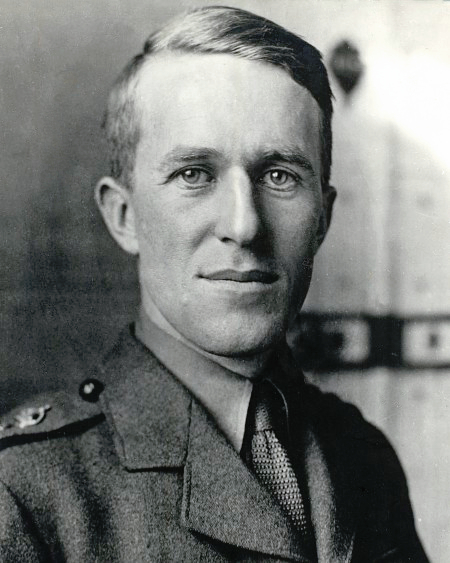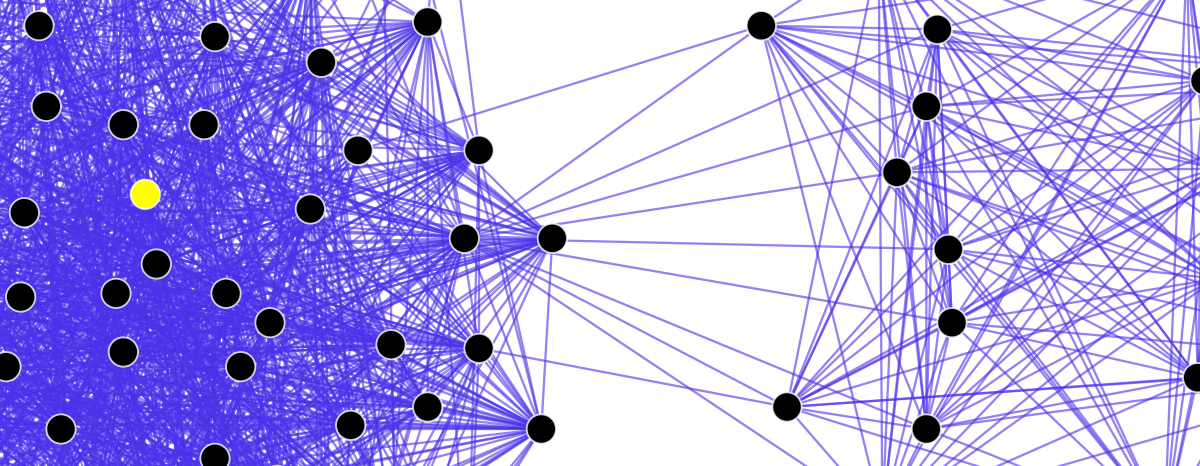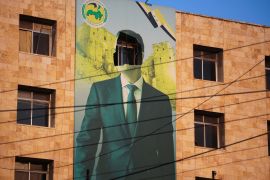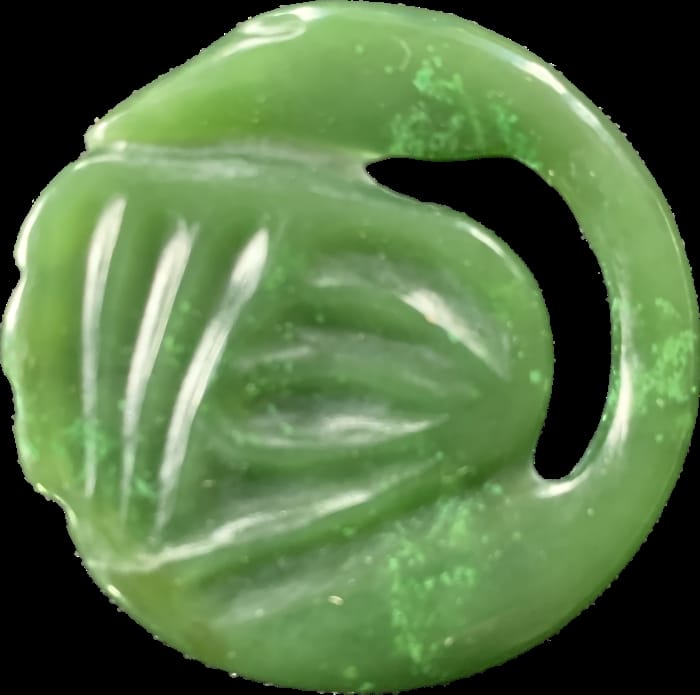Syria and the Cycle of History
Ibn Khaldun wrote in the 14th century and spoke about the spiral nature of history. He saw the Mongol invasion do the exact same thing the contemporary rebels just did - move through the same cities in the same order because that's the only way to get to Damascus. And it happened very quickly.

Green: Represents the Rashidun Caliphate and symbolizes Islam and prosperity. White: Represents the Umayyad Caliphate and symbolizes peace and purity.
Black: Represents the Abbasid Caliphate and symbolizes oppression and the struggles Syrians have faced.
Red: Represents the blood of the brave martyrs who put their lives on the line and gave everything in order to serve their country and it's people.
Please scroll down for links below the transcript. This is lightly edited AI generated transcript and there may be errors.
Dr. Josh Stout:
...For good or evil, this is what happens when you have a pure spirit that is fighting...
Eric:
A decadent spirit.
Dr. Josh Stout:
A decadent spirit, essentially. Yeah, exactly. And so this this this is how a lot of the Arab world sees the cycle of history. So it's rather than two forces, democracy versus anti democracy battling it out. And then, you know, coming up with some new way of being they they they really see it as the pure spirit of the people overcoming overcoming the decadence that has happened.
Eric 0:04
is this is this a history lesson? Is this what we're doing? Because normally you're you know, you have a mission with like rocks or, you know.
Dr. Josh Stout 0:13
I don't I don't want to do a history lesson. What I want to do is I want to think about how the Arab world sort of in general has seen what has just happened in Syria. And I want to show how this can apply to us, because it's a different way to think about history.
Eric 0:29
How do you know how the Arab world has seen what is? I don't know how the Arab world sees what is happening.
Dr. Josh Stout
I’ve studied a couple of historians from different cultures, and one in particular, Ibn, was just a brilliant writer in the 13th century, 14th century in in the regions of Baghdad, really. And so he's writing about what was happening at the time when the Mongols were coming in. And he's seen cultures be overthrown and he talks about how this happens. And so a lot of the Arab world has a sense of history from this. And he's he's the guy who was inspired my spirals in my art, the idea of cyclical, but moving back moving back again to where you came from, this. Khaldun.
Dr. Josh Stout 1:17
Ibn Khaldun, he wrote the Muqaddimah. The Muqaddimah is the central philosophy of our kung fu art.
Eric 1:24
He wrote the Muqaddimah of Silat?
Dr. Josh Stout 1:26
No, the Muqaddimah of Silat is taken from the Muqaddimah of Ibn Khaldun. Ibn Khaldun, really? And the the idea of the cycle of history. Yes, it's a direct quote of that. And so I've been interested in this for quite some time. And I want to take this idea of how history works and I want to apply it to what's going on in our country. For example, I think it's useful to have different ways to think about it. And, you know, we tend to go with a Western understanding of, Marxist history, you know, the dialectic and all this kind of stuff. And there are other ways to look at history and there are other other frameworks to do it in. And a lot of the world is using using this this other kind of spiral nature of history rather than a dialectical one. So it's not just two forces coming together to produce a third thing, but it's something always returning back to one source.
Eric 2:23
When you say two forces that the Western dialectic, would that be good and evil? Like what are the two forces?
Dr. Josh Stout 2:27
It's it's, you know, whatever kind of contest there is. So, you know, in our country, we're built on a dialectic of two parties and they're always trying to produce the other thing. And the Arab world has not often had that kind of two party model. And I suspect that a lot of it is coming from this this kind of view of history. So anyway, I want to go back to I really the shock of what we just saw happen in Syria as a small group of not well-armed rebels took over a large country with a much, much larger military. And, you know, relatively world class equipment and maybe a little bit, you know, second, second level, but provided by Russia with, you know, a full on air force and and, you know, missile defense systems and all of this and attack helicopters.
Eric 3:21
They have, if not the most up to date, they have contemporary weapons.
Dr. Josh Stout 3:25
They have contemporary weaponry, and they were beaten by a bunch of guys with machine guns on trucks and a very small amount of people compared to the very total army, you know, tiny, tiny numbers. So how could these things happen?
Eric 3:37
And it seems to have caught everyone by surprise.
Dr. Josh Stout 3:40
Pretty much everyone by surprise. And as who how can it happen so quickly? And so there was a journalist for Al Jazeera, Ibrahim al-Marashi, who described how Ibn Khaldun had predicted exactly this kind of sudden collapse of groups and of of of even whole societies and he - so Ibn Khaldun was writing, as I mentioned in the 14th century, he was watching the Mongol invasion. He watched the Mongols come and do the exact same thing that the rebels just did. They, they, they, they came they, they came through the same series of cities because that's how you have to do it to get to Damascus and and you conquer the first one. Then he conquered Homs and then you then you enter Damascus. And so the Mongols did that in basically exactly the same kind of way. And it happened very, very quickly. And so Ibn Khaldun is all about the circular or spiral nature of history.
Eric 4:48
Talking six or 700 years ago.
Yes. Yeah. Well, okay.
Dr. Josh Stout 4:57
And how how there's these repetitions. You know we talk about it rhyming or, you know, first time is tragedy. Second time is farce - this is a different kind of way of thinking about it. This is thinking about how there is these forces that drive things forward, but they have to follow certain paths. And we see these paths over and over again. And so, you know, if an army wants to get to Damascus, they're going to go through these cities. And if there is effective resistance in these cities, they're not getting to Damascus. But if there isn’t, the path is open. And so he saw it happen in a matter of days and we saw it happen in a matter of days. And so this journalist for Al-Jazeera was like, you know, we should mention this, this has happened before and people have said it will happen again. You know, And look, it happened again. Exactly. Yeah. And so there is there is this there's this word to describe the spirit of a people that is used in Ibn Khaldun. And even Western scholars who study him tend to they tend to downplay it because it sounds like you're talking about jihadism. It sounds like you’re talking about fanatics. And it certainly has some resonance with those ideas. But the spirit of a people doesn't have to be, you know, the will of the Reich. You know, it doesn't have to be that kind of spirit.
Eric 6:25
It doesn’t have to be the basest of the spirits.
Dr. Josh Stout 6:27
You can have a you can have a spirit that is the people. And it's not The Triumph of the Will. Yeah, right. Okay. So it's dangerous to talk about spirits driving groups of people because it can be dangerous. And this is why we're a little bit afraid of what's happening in Syria right now. And you know, this is why we are often scared of populist movements because it's the spirit of the people is a terrifying thing. Yes. And it's powerful, very, very powerful. And things can change very, very quickly.
Eric 7:02
The spirit of the people can quickly turn into mob mentality.
Dr. Josh Stout 7:05
And, you know, this is this is what, you know, V was specifically referencing, you know, you know.
Eric 7:11
I. Love. That. Movie.
Dr. Josh Stout 7:11
The powers that be haven't heard the voice of the people in a long time. And it's, you know, a lot louder than they remember.
Eric 7:17
Yeah.
Dr. Josh Stout 7:18
And this this this is how a lot of the Arab world sees the cycle of history. I think I saw it best described in T.E. Lawrence’s Seven Pillars of Wisdom. So this is Lawrence of Arabia who writing about, you know, the British and the Ottomans in in the Arabian Peninsula and his role in trying to organize things. And people criticize him, saying, you know, you were just colonialists and the Arabs had their own uprising. All that aside, he was right in the middle of all of this, watching the spirit of the people watching it develop, and he had read Ibn Khaldun, so he knew what he was involved in. And so he was part of.
Eric 8:01
And when he was talking about this, this is what he was talking about.
Dr. Josh Stout 8:03
Is about what he was talking about. So he was part of a tribal spirit, scary and wonderful as that might be. Something where people can ride camels out of the desert and take a modern city. And he did that more than once. Now it was his idea or the other people's idea. It certainly wasn't his spirit, but he was he he knew what he was onto and how he was trying to make these things happen. And so that's, you know, definitely there's manipulation in there and there's colonial aspects in there. But as a person involved in the movement, he was very, very aware as a scholar of of what was what was happening. He was an Arab scholar who had been basically drafted by the British to just throw him into this. And you know by all accounts, he honestly cared for the people he was trying to work with and thought that the Ottomans were bad and everyone else he was with thought the Ottomans were bad. And so some British help was welcomed essentially, but they never gave any have any heavy weapons because they didn't trust them. The British did not trust the Arabs at all. And so that's the part where it's, you know, gets colonialist. But you see Lawrence arguing all these things. So anyway, in the seven pillars of wisdom.
Eric 9:15
It sounds like from what you're saying, the movie was pretty true to a lot of this.
Dr. Josh Stout 9:18
Relatively, relatively. I mean, he liked to hype himself. He definitely seemed like he was putting himself in front of a bunch of people who were running in that direction.
But you know that he did that. Yeah. And that's the thing that he did. Yeah. And they put him on a white camel, which he then accidentally shot in the back of the head.
Eric 9:37
That part I didn't know. Yeah.
Dr. Josh Stout 9:38
Didn't get into the movie, you know, he goes charging in, he's waving his gun around, he's got the prettiest, tallest camel of all of them. He's been awarded this and he points his gun at the first person he sees pulls the trigger and he shoots his own camel in the back of the head. A lot of bad things happened. He wasn't this successful all the time as the movie made it. But yeah. Anyway, he writes about how this spirit works as you get these cities full of decadence and the government becomes decadent and the people become decadent under the government. Yeah, exactly. And there's corruption at all levels. And nothing works without the corruption and the people there. And the people start to hate their their government, their city. They hate what's what's happening all the time. They hate it because they feel, you know, they feel the taxes, but they feel also the loss of the taxes. They feel, you know, they're paying money to the government to defend them. And at the same time, they can't get their caravan through the desert without getting attacked. You know, So they they they they they feel that the government isn't serving their needs and they feel that they're they're, you know, basically working to make the the the the powers that be wealthy while they are they are suffering. And so what happens out in the desert as as as Lawrence is putting it out, you're alone there in the desert with nothing but you and the sun. You start to redefine monotheism and you start to think about the one truth and you start to think about those cities are really decadent and you rise up with your group of people from the desert and you crush the cities. And this happens over and over and over again. And that this is the cycle of what Ibn Khaldun was seeing in the 14th century, right? So very far from any kind of, you know, democratic movements. He's seeing the the the nomadic tribal people from the steps of, you know, Western Asia pouring into Baghdad, these incredibly sophisticated, advanced cultures with the best weapons in the world, you know, large fortresses with huge walls getting crushed by, you know, people on ponies who, you know, were now ruling much of the world. And he was saying this is as for good or evil, this is what happens when you have a pure spirit that is fighting.
Eric 12:14
A decadent spirit.
Dr. Josh Stout 12:15
Decadent spirit, essentially. Yeah, exactly. And so this this this is how a lot of the Arab world sees the cycle of history. So it's rather than two forces, democracy versus anti democracy battling it out. And then, you know, coming up with some new way of being they they they really see it as the pure spirit of the people overcoming overcoming the decadence that has happened. And, you know, this is absolutely what had happened under Assad. So that things were incredibly decadent. The the the army was essentially, you know, forced to fight at gunpoint and paid almost nothing. There was no army in many cases. The the the good commanders who were only paid $10 a month while their their soldiers were paid $1 a month, would just send their soldiers home so that they could get jobs. And then the good commanders would collect the soldiers money. So they had a decent salary of, you know, maybe $100 a month. And so, you know, this was true all through the ranks. And so if if if if the, you know, the cruel commanders made their soldiers stay there and then just use them to collect, you know, payoffs from the people, and the better ones sent them home and collected the money, Either way, there was basically no army, and the army dissolved as soon as as soon as they were faced. And if you if you think about what actually happened in terms of the rebels were on the outskirts of Homs, they weren’t anywhere near Damascus when the when the the suburbs of Damascus rose up. It wasn't actually the rebels who took Damascus. It was Damascus that took Damascus. It was the it was the it was the people on the outskirts just basically looking out their windows and the army was gone and then just walking into the streets. And the more that happened, the more the army was gone. And the army never fought anyone. They just became those people in the streets or left. A lot of them went home like I was. I was reading about someone, you know, where he'd been.
Eric 14:12
There had been other assaults. Why was this one the one where it all dissolved.
Dr. Josh Stout 14:18
This happened exactly the same way the first time the the the first time the rebels were coming in from Aleppo, the the army started defecting. And most of most of the rebel army were former soldiers. And then it was Iran and and and Russia that just started bombing them and providing, you know, air support.
Eric 14:41
So this is solely because of a Russia is occupied in Ukraine and Iran is occupied with all of its is it's it's a what do they call.
Dr. Josh Stout 14:55
All these proxies.
Eric 14:56
Proxies working in fighting with Israel.
Dr. Josh Stout 14:59
No, it's also losing right. It's losing heavily I mean.
Eric 15:02
More than decimated.
Dr. Josh Stout 15:04
Not not not not pro whatever this sort of genocide thing is happening. But in terms of Israel taking on proxies of Iran, it's been doing an amazing job.
Eric 15:21
Terrible, terrible job, but an amazing job of being incredibly terrible in fighting a war.
Dr. Josh Stout 15:27
War. You know, one of the things that was stopping the keeping all of these pieces on the table and stopping Syria from being overthrown by the rebels was the huge stockpile of missiles in Lebanon. And there were enough to destroy Tel Aviv. And so Israel was like, no, they're not. They're gone now. All of those are gone and the commanders are gone, and that's all gone now. And at the same time, you know, who had been defending Syria? It had been the Wagner group. And, you know, they're gone.
Eric 16:01
Right.
Dr. Josh Stout 16:02
And it and it had been the Russian military and their air force. And they had to go to Ukraine.
Eric 16:09
So how long until this rot infects into Iran and Russia like it seems like that has to be next?
Dr. Josh Stout 16:15
I don't know. But there's a whole bunch of dominoes that are falling. So Israel took out one of the four Russian made air defense systems around Tehran and it’s not saying how it took out the other three,
Tehran now has no effective air defense systems. And so basically it's been put in check. So that the way Tel Aviv had been threatened by Hezbollah before with a bunch of missiles. Now, now Tehran itself has been put into this threatened position.
Eric 16:52
And and this morning today is Wednesday, December 18th. This morning you heard about the Russian general who was assassinated by a targeted explosion.
Dr. Josh Stout 17:04
No, I did not.
Eric 17:05
Inside Moscow.
Dr. Josh Stout 17:08
Wow. Yeah. No. Think, think, think things are happening. So Syria was the was the was the staging ground for everything that's been happening in Africa by Russia. So the Russian mercenaries again and again, the Wagner group had been based in Syria and then doing all this stuff in in in Africa. I mean it won’t collapse immediately and it will probably end up, you know, leaving a vacuum that the Chinese will fill. But, yes, a lot of a lot of those businesses by the, you know, the military oligarchs with their mercenaries digging up gold and blood diamonds.
Eric 17:43
Well, get ready for the American oligarchs.
Josh:
Yeah, I don’t know, I don’t think we’re nearly down the same path as of evil as they are. But yes, we're definitely moving in that direction. And so that's what I wanted to mention is is is this cycle of history and how we’re trying, basically, through manipulation of our desires, democratic desires to make our lives better. We have gotten into this situation where we have two groups fighting each other and letting the oligarchs win. And so you have rural areas fighting the elites who they see as us. And we're trying to, you know, demand equality between races and genders and we're trying to fight for these things. And in the meantime, we're just being crushed by immense income inequality which is the underlying problem for everything we see. And the only reason that can exist in a democracy is if we vote for our own inequality. And we are doing that in large numbers because we're distracted by the demons that we're shown by, you know, media on all sides, essentially.
Eric:
But we're also told over the zero sum relationship. Right. And you've spoken what is the name of that experiment where they’re offered…
Josh:
I’ll talk about that in a second. But yeah. Spoken of it before. Yes.
Dr. Josh Stout 19:13
Yeah. No, it's a really excellent example. But yeah, there is no organization conspiring to keep us down and we've also spoken of that. Yes. But there is a manipulation of, I don't know, the thought space that we live in. So there are these two sides fighting against ourselves and the people have no voice, so we don't develop and our Asabiyyah to overthrow our shackles essentially. I’m not talking in marxist sense of I, you know, a rising of the proletariat. I'm talking much, much more of we all know we're getting screwed. And I think if we all acted together, we are completely unstoppable. And what seems like a edifice that cannot be ever overcome, you know, the walls of Baghdad are, you know, 300 feet high and cannot be breached. There are, you know, 40 feet thick - fall in an afternoon. I know, because the people inside are already revolting.
Eric 20:22
What about states rights? I mean, the very states rights has changed into a way to keep us divided and arguing amongst ourselves.
Dr. Josh Stout 20:31
Yeah, exactly. All of these things are true. All of these things are, you know, psychological techniques that are being used essentially by us against us to keep the oligarchs in power. And it's the only way they can stay that way. So you were just mentioning the psychological experiments that were done, I think it was at Harvard where they were they were taking economics graduate students, I think graduate students, people who should really know better and offering people, I'll give you $5 and I’ll give everyone else $1.
Or I'll give you $10 and I’ll give everyone else in the class $20. And everyone was like, [the latter option] sounds terrible because I have less money than everyone else. So even though you have twice as much money in real terms, you went from $5 to $10. You don't want it. You would rather have $5 and everyone else have $1 as an economist, grad student at Harvard where you don't need the money. So this all just a game to you because you're looking at the numbers on it.
Eric 21:44
But you didn't win.
Dr. Josh Stout 21:45
And you only win if you have more than everyone else. It's not about how much you have yourself. And so these are these are the psychological games that we're using to defeat ourselves. And these this is what I mean. Like you don't need a conspiracy to make you believe that this is built into our psyche and the way the way capitalism works, we all think we're going to win the lottery. And so you have people voting for oligarchs because they want to be an oligarch. I mean, that's one reason there is a whole bunch of other ones. Again, divide and conquer the race baiting that constantly going on. All of that is is part of creating this division so that the voice of the people doesn't exist.
Eric:
It seems that the voice of the people is speaking in the words of the oligarchs.
Josh:
In the words of the oligarchs. Exactly. Is is is calling for a boot on our necks. And, you know, and this is this is this is what the the Syrian army was forced to do. It wasn't just they had to shoot at the rebels. They also had to, you know, chant the name of Bashar Assad and say his family was, you know, the the the divine family and that they were more important than God. And, you know, definitely this is another group that we're seeing come in here that follows much more of the original idea of the Asabiyyah where there's definitely a religious component to it.
Eric 23:18
Asabiyyah.
Dr. Josh Stout 23:19
The the spirit of the people, the, the, the idea of ‘no there is a God and it’s not Bashar’. And that is part of what enabled them to win.
Eric 23:35
Unfortunately, here, though, I think I don't think we're in the point where we're congealing yet. Yeah, some things need to happen and that's unfortunate. It feels like it feels like everyone is tired and waiting, right?
Dr. Josh Stout 23:48
Well, I think so. For example, we have religious people who are very fundamentalist in this country.
Eric 23:53
Oh, yes we do.
Dr. Josh Stout 23:54
And much like in Syria, they're not in the majority. But when they move, they have a lot of power.
Eric 23:59
And because they move together.
Dr. Josh Stout 24:01
Because they move together and because they have this this spirit to a certain extent, I think a lot of it is artificial. I think the mega-churches are basically corporate like shill money machines that are milking, again, the spirit of the people. But if if they moved away from that kind of corruption and we saw something that was uniting the American people just the way Syria had been united between the sort of, you know, modern, cosmopolitan city dwellers who wanted Bashar Assad out, and the people from the hinterlands who are, you know, God and conquering in his name who are like, no, Bashar is not God. There is no God but God.
And, being successful because of that. But it wasn't them. It wasn't their it wasn't their, you know, fundamentalist belief that made it happen. But the purity of their spirit enabled them to start moving. And then the people rose up and it wasn't them who conquered Damascus. It was Damascus that conquered Damascus.
Eric:
Well, it took whole lot of pain. It took 50 years of torture and pain. Yeah. For them to get there. And that's not an exaggeration. And we can't afford that. Yeah.
Eric 25:20
If we have to go through 50 years, we're going to look the way Syria looks. We're going to have ruined institutions and ruined cities.
Dr. Josh Stout 25:26
I really hope not. But I think we are. I think we're seeing it happening. I think I think we're in that period of pain. I think we have been since 2016, maybe earlier.
Eric 25:36
Oh, we are nowhere near that level.
Dr. Josh Stout 25:38
Not not not in terms of civil war. But I think we're because. Okay, so again, spiraling cycle of history, I don't think we're going towards, you know, shelling and tanks in the cities. I don't think that's going to happen. I don't think we're in a civil war. I think we are in a different kind of war where it’s the same patterns, but at the next time around the cycle.
Eric 26:02
Well, we got to start seeing it as a war soon or there's going to be a lot lost before there’s any gains.
Dr. Josh Stout 26:06
And what what I'm saying is I don’t generally think about the religious factions in this country and their power. But when you think about these words and what just happened in Syria and the nature of the spirit of the people, when you have both joining of the secular people, the scholars and the fundamentalists who do not have scholarship coming together and realizing that their their false idols must be cast down, I think something really, truly fundamental can happen, you know, and I think.
Eric 26:43
We just saw it. But I just the question is, how long will it take for us to get to that point?
Dr. Josh Stout 26:47
Well, if if if I think if the right wing fundamentalists realized that Trump is not actually the second coming and supporting Jesus, which they fully do.
Eric 27:00
But he is.
Dr. Josh Stout:
That is what they believe but I think that they might find otherwise.
Eric:
Because he’s fulfilling the things that they want to see fulfilled, like he's following through on his promises to them.
Dr. Josh Stout:
I don’t think he is.
Eric:
The ones that are important, the judges, the justices things, things that are going to last generations.
Dr. Josh Stout 27:21
Most of that is important to the oligarchs. Most of that is removing the regulations and putting in a power system that will allow the oligarchs to get richer.
Eric 27:30
But still, I don't think we are nearly at the point where these different - I understand what you're saying, but for all these different groups in America to come together.
Dr. Josh Stout 27:39
I agree.
Eric 27:40
And see that they have the same false idols.
Dr. Josh Stout 27:42
What I'm. Okay, so here's here's something interesting we have been caught, in, I think, almost a fundamentalist Marxist view of history in I think, all of the Western world where we only see advance through destruction and where communist infiltrators trying to destroy a country so that communism can be victorious.
That is a classic thing - the communist view of history.
Eric 28:15
Will bring you to where you need us.
Dr. Josh Stout 28:17
And I have heard of many people saying that the only way America can get better is through its complete destruction. And I think that is essentially a again, a marxist view of of of the destruction and then the renewal coming from the ashes of the old world.
Eric 28:36
Wasn’t that Newt Gingrich's plan for the House and the Senate.
Dr. Josh Stout 28:40
I think Newt is he's he's a historian. He's also coming from the same world. I'm trying to say that there are other ways to think about it. And so this this is a Syrian an Arabic, a Arabic historian way of the cycle of history of we have a pathway. We're not going to follow exactly the same pathway as before. We're not going to go through a civil war, but we're going to have a civil war of ideas. And it might be almost as painful as a civil war where, you know, you have, as you mentioned, the cities will start to suck. They're not going to be bombarded, but they're going to be tortured.
Eric 29:21
We'll be back to the seventies when the you couldn't wheel a cart down the sidewalk.
Dr. Josh Stout 29:26
And they're bussing in immigrants who like our have nothing into the streets with a.
Eric 29:31
Literally homeless on the streets.
Dr. Josh Stout 29:34
All of this is being created. Absolutely. Absolutely. This is this is definitely happening. But this is this is, you know, the next cycle. I don't think we need a full on Marxist destruction and then recreation.
Eric 29:46
What you’re talking about in terms of the cycle that everything is cyclical is that instead of like things being destroyed and then built back better where there's a a progressive idea in in a history is a progression towards a better future. You're saying even though the tools that we have change and maybe some of the methods that we use change humanity's humanity and we keep we keep coming back around to the same thing again and again and again.
Dr. Josh Stout 30:13
Absolutely. But it's a spiral. It's not a circle. There is improvement. So Ibn Khaldun saw evolution as a spiral. He saw that humans evolved from monkeys because monkeys were the closest to humans. And we come back around and we were still monkeys, but we come up another level. Yeah. And he and he did see society this way. And so I do think there is hope in this kind of sense of history. There's hope in the Marxist sense too, that everything will be destroyed and we'll grow up from the ashes. But I actually I kind of like this idea. I'm a little scared by the idea of the spirit of the people, and I think we should be scared of that. But but it's it's really the only way.
Eric 30:50
Because right now the spirit of the people doesn't feel like it's very positive. It doesn't feel very good. It doesn’t feel very nurturing.
Dr. Josh Stout 30:54
No, because it's it's been it's been manipulated to support the the ultra wealthy and somehow, you know, the the rural people who hadn't been to college, who all worship in these mega-churches, all voted for the oligarchs. And we see them now ruling us. But that is that is a that is a system where you've got a mountain sitting on a nail and it's just not stable. It's going to fall over and it's very heavy on that now.
Eric 31:23
I loved I loved seeing the Assad bedroom’s doors.
Dr. Josh Stout 31:27
Yes. Yeah.
Eric 31:28
Right. The doors were a foot and a half thick and there was all sorts of security measures, but none of it was ever used, none of it ever mattered.
Dr. Josh Stout 31:37
You know, none of that mattered. Not when the whole people is against you.
Eric 31:40
He knew that the only thing to do was to immediately leave.
Dr. Josh Stout 31:44
Yeah.
Eric 31:45
What are you going to do? Lock yourself inside a room and stay in that room for how long?
Dr. Josh Stout 31:50
No, no. That was in case his own guards had a palace coup. He could. He could wait until some other guards got there. That was now when the whole people.
Eric 31:56
Now he knows there were no other guards to get there.
Dr. Josh Stout 31:57
There were no other guards. Exactly. Yeah, yeah, yeah. No, I mean, this is the same thing that ISIS did when it took over Mosul. There was, you know, hundreds of thousands of of Iraqi troops in Mosul and like 50,000 ISIS people took it over. Yeah. And it's happened again and again in recent history where people with a clear view good or bad, have taken over whole modern cities.
Eric 32:20
Yeah.
Dr. Josh Stout 32:21
In in in the Middle East recently or Afghanistan, not even the Middle East.
Eric 32:25
In the Six Day War there were boots left in the sand.
Dr. Josh Stout 32:28
As soon as as soon as we as soon as we left Afghanistan. A much larger, much better equipped Afghani force fell to the Taliban in days, just days because they all just put down their weapons and left.
Eric 32:40
Because why would they fight?
Dr. Josh Stout 32:42
Why would they fight? They had no clear vision. And so, again, this doesn't have to happen necessarily on the forces of good. Sometimes it happens on the forces of fundamentalism. But you see, that was a corrupt, modern state that was functioning sort of. But as soon as it met any resistance, it fell instantly. I think we we are we could be at any moment on the edge of this kind of thing. This is what we were talking about with Jed. I at one point I, I was asking him about, you know, how how do you see the future? And he said, well, it’s sort of like a bankruptcy things progressing and it's very, very slow and you think it's never going to end. And then suddenly it all happens at once. All the bills come due. There's nothing in the bank, and it's a collapse of everything across the board. And there are a lot of systems like this.
Eric 33:39
Everything's fine until it’s not.
Dr. Josh Stout 33:41
Until it's not. And, you know, we do tend to see this in the sort of, again, I the absolute Marxist terms of, you know, one side getting crushed so the other one wins. But it's interesting to think of it in a in a spiral fashion where you're you're coming back at another level and there's good and bad in that.
Eric 33:59
As long as as my as my five year old son says there's as long as we level up.
Dr. Josh Stout 34:04
Exactly Yeah. That's the idea.
Eric 34:05
Like if we don't level up, then it's just then it's just the same thing again and again with different toys on a different day.
Dr. Josh Stout 34:11
And well, if you don’t know where you are in the spiral. You could be the part that's getting worse before you're getting back.
Eric 34:15
It's very Marvel multiverse-ish. I don't like it, but yeah, it feels like this, this kind of philosophy definitely has an appealed to it.
Dr. Josh Stout 34:26
Okay. So let's let's get back to some some things where we understand the philosophy at a different level. So the Muqaddimah in our style, which was based after the Muqaddimah of Ibn Khaldun.
Eric 34:35
When you say ‘our style’ you're talking about Silat Kung Fu.
Dr. Josh Stout 34:37
Yes. So it's an Indonesian. originally, you know, Chinese kung fu brought to Indonesia and taking on things from the Muslim world, including this idea of Ibn Khaldun’s history and the Muqaddimah. And so with a completely different spelling, it's called the Mukkadima, and it talks about going from nature and returning to nature. And so we take what's natural and we learn these unnatural moves and we make them natural again. But now we've leveled up, right? And we've come around that circle back up to another level and then we do it again.
Eric 35:13
By making the unnatural natural.
Dr. Josh Stout 35:15
And so we go back to the very beginning and we learn our fundamentals again and we make that same circle again and we come back and we're at another level. And so this is a really interesting way to think about advancement and history that I think is is useful and that we don't really have in our existing culture.
Eric 35:33
I mean, there's there's no doubt it you, you, you bring it up in our in our physical practice. But there's also no doubt in our you know, in our very lives the lessons that we learn when we're younger, we need to learn them again.
Dr. Josh Stout 35:44
Again, again and again. But hopefully at a better level.
Eric 35:46
Hopefully I have a more subtle understanding of what I'm doing this time, but I'm like, Oh my goodness, I forgot that. And now I have to learn that again. But at least I'm I have a bigger world. Yeah, yeah.
Dr. Josh Stout 35:57
Yeah, yeah. All right. I want to. I think we can finish some of this, like thinking about it as. Yeah, we don't know where we are in the cycle, but we have the potential for continued improvement, even if sometimes it seems like we're going back to where in places we've been before.
Eric 36:11
It's definitely a hopeful message. And I like it in this in this very, very unsettled time. Thank you. All right, folks, until next time. Thanks so much for listening. Take care.
Theme Music
Theme music by
sirobosi frawstakwa


